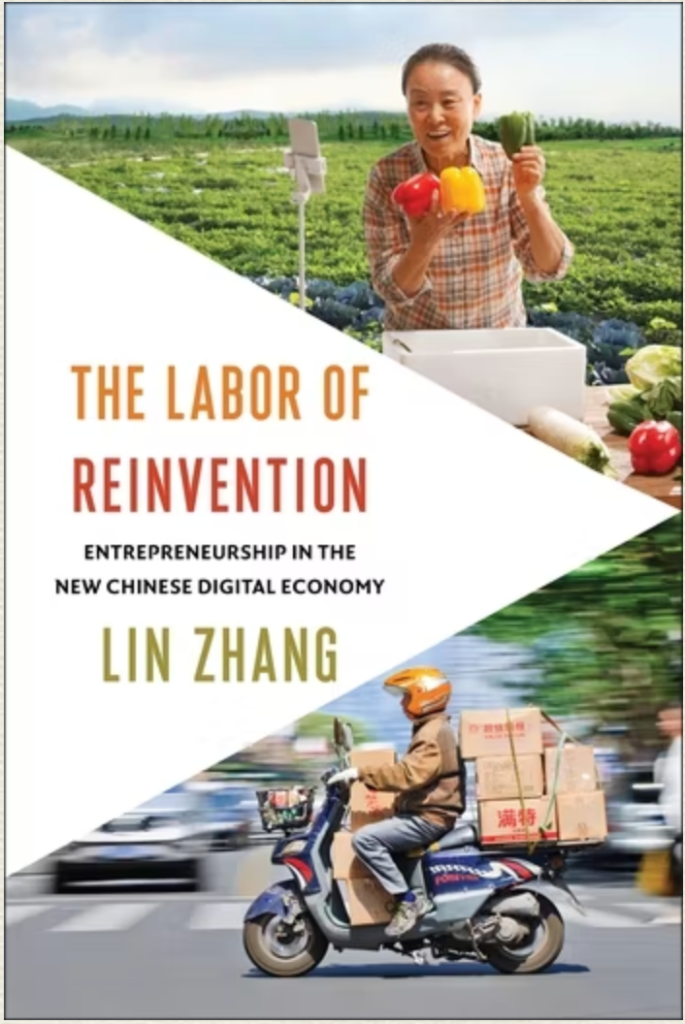The Labor of Reinvention: Entrepreneurship in the New Chinese Digital Economy (Columbia University Press, March 2023)
From start-up founders in the Chinese equivalent of Silicon Valley to rural villages experiencing an e-commerce boom to middle-class women reselling luxury goods, the rise of internet-based entrepreneurship has affected every part of China. For many, reinventing oneself as an entrepreneur has appeared to be an appealing way to adapt to a changing economy and society. Yet in practice, digital entrepreneurship has also reinforced traditional Chinese ideas about state power, labor, gender, and identity.
Lin Zhang explores how the everyday labor of entrepreneurial reinvention is remaking China amid changing geopolitical currents. She tells the stories of people from diverse class, gender, and age backgrounds across rural, urban, and transnational settings in rich detail, providing a multifaceted and ground-level view of the twenty-first-century Chinese economy. Zhang explores the surge in digital entrepreneurialism against the backdrop of global financial crises, the U.S.-China trade war, and the COVID-19 pandemic. She argues that the rise of internet-based industries and practices has simultaneously empowered and exploited digital entrepreneurs and laborers. Despite embracing high-tech innovation, state-led entrepreneurialization does not represent a radical break with the past. It has provided a means for implementing developmental goals while retaining the importance of the traditional family and generating new inequalities.
Shedding new light on global capitalism and the digital economy by centering a non-Western perspective, The Labor of Reinvention vividly conveys how the contradictions of entrepreneurialism have played out in China.

- Listed as one of the best books of the year by FOUCS https://focus.cbbc.org/best-china-books-2023/
- Reviewed in Asian Review of Books
- Reviewed in Eurasian Geography and Economics
- Reviewed in the International Journal of Communication
- Reviewed in The China Quarterly
- Reviewed in The Communication Review
- Reviewed in The European Journal of Cultural Studies
New Book Project
My current major project, and next monograph under preparation —Between Nationalism and Internationalism: Navigating the US-China Nexus in Biomedical Innovation—will uncover the US-China linkages in the transnational biotech industry since the 1980s, focusing on the cross-border flow of racialized knowledge work and entrepreneurship, capital, technologies, and policy mobility. It will also explore how recent trends towards decoupling and strategic competition, exemplified by the trade war, the US government’s China Initiative, and China’s indigenous innovation efforts, are destabilizing these linkages and reshaping the global biotech industry and the experiences of transnationally mobile knowledge workers.
This research journey will take me into uncharted territories within transnational Science and Technology Studies (STS), Asian American studies, and the history of US-China relations. It also builds upon my prior investigations into information work, entrepreneurship, and the intricate dynamics of industrial policy and state-building, widening the horizon of communication and media studies’ understanding of “tech work” to encompass the relatively unexplored domain of the biotech sector while also relying on its attentiveness to cultural representation and discursive politics.
